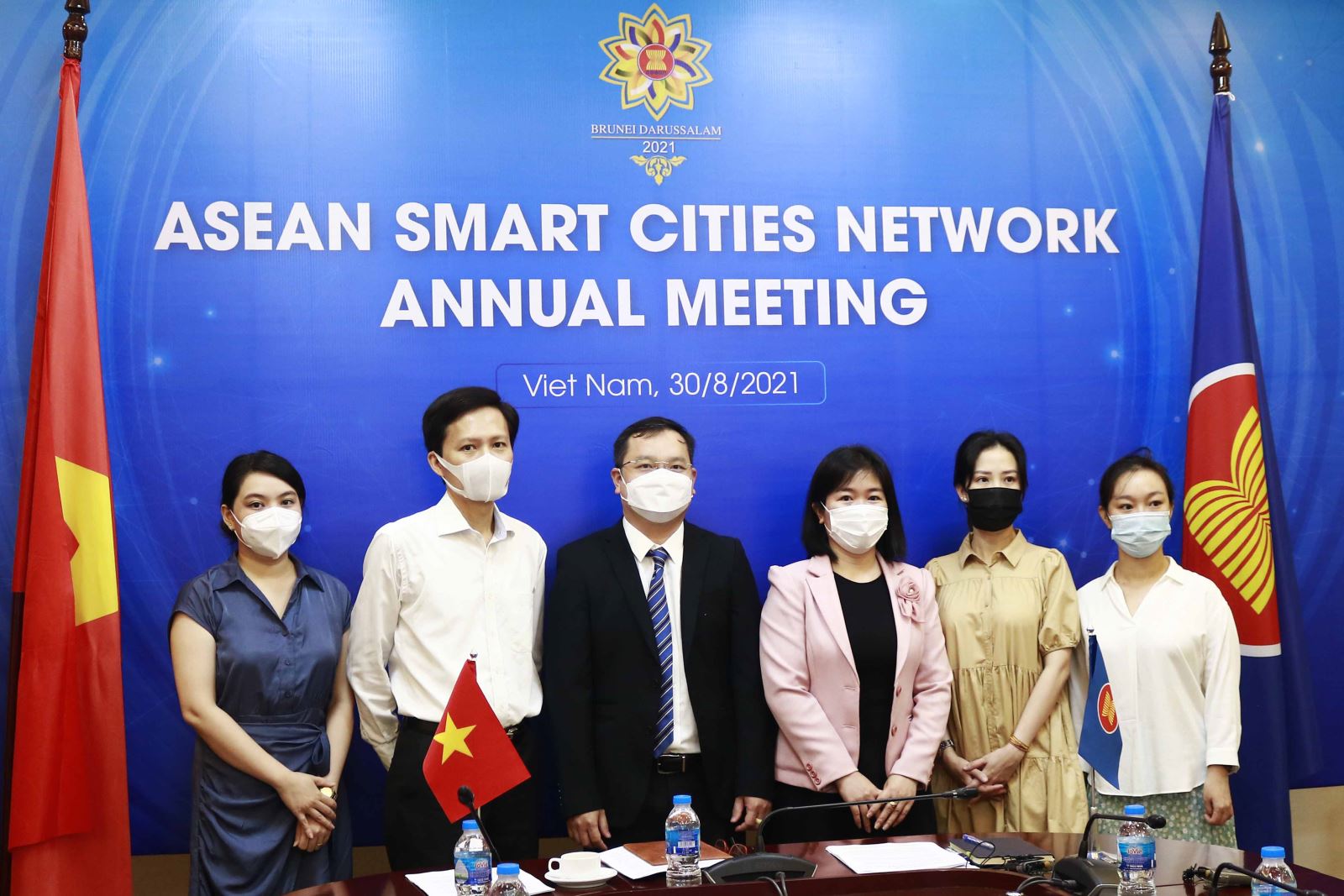Vietnam looks for growth opportunity in ASEAN Smart Cities Network
Vietnam has proposed an initiative on investment kits for ASEAN smart urban cities as a way for member countries to better assess the feasibility of smart city projects.
Vietnam is committed to pushing for cooperation with members of the ASEAN Smart Cities Network (ASCN) and other partners to look for opportunities for growth.
| MoC's representatives at the online event. Photo: MoC |
“The core goal of promoting smart cities is to improve people’s living quality, for the development and advancement of humanity and country’s sustainability.”
Deputy Director of the Urban Development Agency under the Ministry of Construction (MoC) Le Hoang Trung gave the remarks at the annual meeting of the 4th ASCN which is held today [August 30].
The online event drew the participation of representatives from 26 city members of 10 ASEAN countries and other partners. The MoC and Hanoi, Danang, and Ho Chi Minh City represented Vietnam at the meeting.
For the time being, Trung said Vietnam would focus on applying technologies to aid the Covid-19 fight.
As half of the population in ASEAN is living in urban areas, which will be added another 70 million residents by 2025, Trung noted the urbanization should be carried out in a smart and sustainable way to ensure successful economic integration.
In this regard, the authorities are expected to be able to identify challenges and opportunities for smart cities, along with the financial mechanisms needed for such projects.
Bearing this in mind, Trung proposed an initiative on investment kits for ASEAN smart urban cities.
“By analyzing data from different perspectives, the kits could help smart cities adjust their projects based on specific financial models to ensure its feasibility,” he added.
Singapore representative noted the digitalization process has accelerated globally with the pandemic serving as a catalyst to develop smart cities.
New demand for growth in the post-Covid-19 pandemic requires the ASCN to work on priorities in smart cities development, and an online portal for members to store data on Smart City Action Plans (SCAPs) is therefore necessary.
This would help to maintain communications among members and attract potential investors to work on smart city projects, he added.
General Director of Thanh Nam Construction Company Nguyen Tuan Anh added design and planning management are key factors in the development of smart cities, adding this would lay the foundation for the establishment of the required platforms for applications in smart cities.
Urban planning expert Le Viet Hung noted e-governance is the most important factor in smart governance and helps maintain the interaction between the authorities and citizens.
“As the Vietnamese Government aims to put the people at the center of its service, smart governance would help ensure a transparent system for people to access more information,” he continued.
ASEAN leaders agreed to set up the ASCN at the 32nd ASEAN Summit on April 28, 2018, which serves as a collaborative platform for cities from 10 ASEAN member states to work towards the common goal of smart and sustainable urban development. The primary goal of the ASCN is to improve the lives of ASEAN citizens, using technology as an enabler. By focusing on people, it adopts an inclusive approach to smart city development that is respectful of human rights and fundamental freedoms as inscribed in the ASEAN Charter. The networking of Smart Cities across ASEAN also contributes to enhancing mutual understanding across cultures. The ASCN aims to facilitate cooperation on smart cities development, catalyze bankable projects with the private sector, and secure funding and support from ASEAN’s external partners. To this end, 33 partnerships have been established thus far. Vietnam served the ASCN Chairmanship in 2020 when the Covid-19 pandemic emerged globally. The event held online for the first time during that period, approved a supervision and assessment framework for ASCN; a cooperation mechanism between ASCN and other partners; and procedures to admit new members. The ASEAN Smart Cities Summit & Expo 2020 was the spotlight in Vietnam’s ASCN Chairmanship with the participation of 1,500 delegates, 40 speakers from Vietnam and abroad. |











